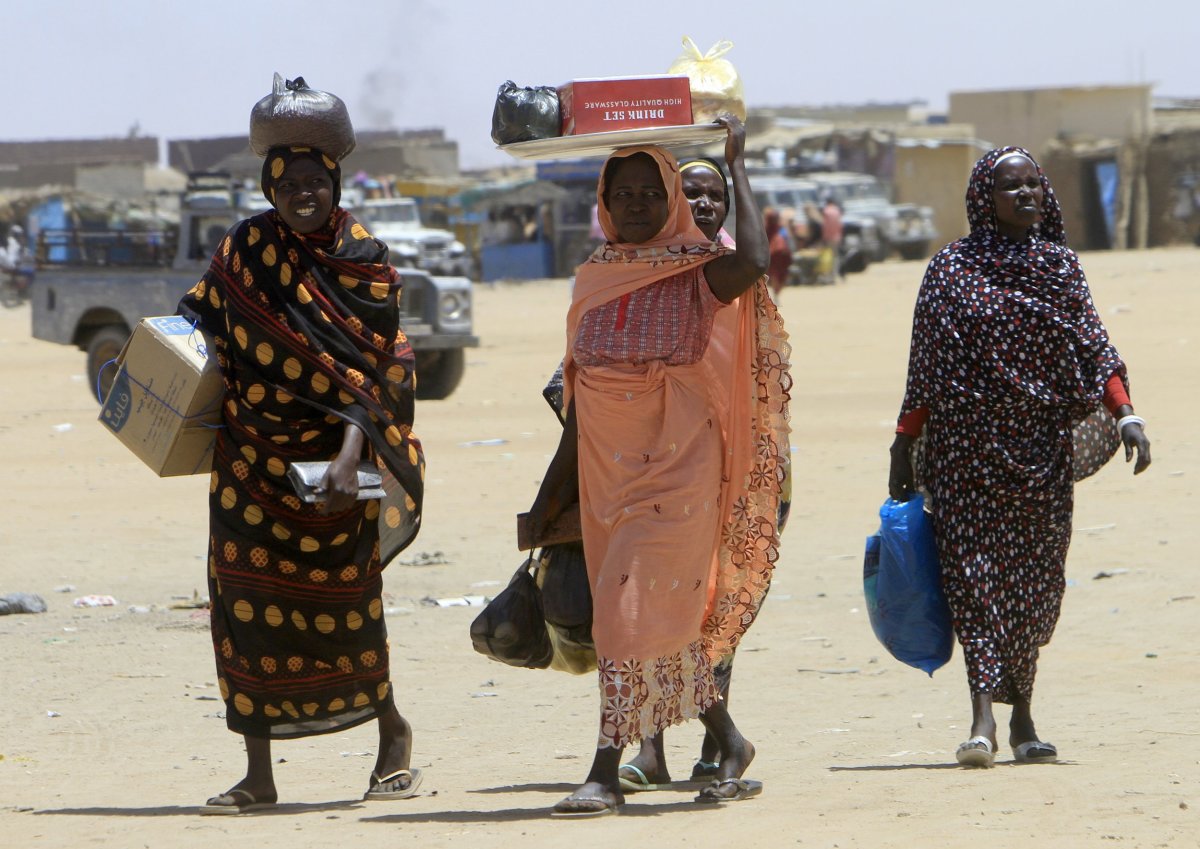
Sudan is a step closer to resolving ingrained conflicts in three areas of the country after several opposition groups signed up to a roadmap for peace.
The agreement, which had already been signed by the Sudanese government of President Omar al-Bashir, relates to the conflict in Darfur, where rebels have been fighting government troops since 2003, Reuters reported.
It also pertains to fighting in the southern regions of Kordofan and Blue Nile, which lie close to the South Sudanese border. South Sudan gained independence from its northern neighbor in 2011.
The conflict in Darfur, a region of western Sudan, was sparked when ethnic Africans rose up against the Arab-led government. The United Nations estimates that around 300,000 people have been killed and 2.6 million displaced over the course of the conflict, with 130,000 people fleeing their homes since January alone.
Fighting in South Kordofan and Blue Nile—known as the Two Areas—erupted in 2011 following the inclusion of the two southern states within Sudan, as opposed to the newly-established South Sudan. Hundreds of thousands of people are estimated to have been displaced by the conflict.
Newsweek looks at the key players in Sudan's war zones.
Omar al-Bashir
Al-Bashir, the president of Sudan since 1989, has come in for international condemnation for his role in the Darfur conflict. The Hague-based International Criminal Court issued an arrest warrant for the Sudanese leader in 2009, charging him with war crimes and crimes against humanity. The warrant was updated in 2010 to include a charge of genocide against several ethnic groups in Darfur, but al-Bashir has refused to recognize the court's authority and accused it of trying to "humiliate" Sudan. Al-Bashir's government has also been accused of recruiting the janjaweed, horse-riding Arab militiamen alleged to have committed atrocities against rebel groups in Darfur.
The Sudanese president signed up to the peace agreement brokered by the African Union in March and has urged opposition groups to sign up to the reconciliation process.
The Justice and Equality Movement (JEM)
Founded by Darfuri followers of late Islamist leader Hassan al-Turabi, the JEM constitutes the major rebel force in Darfur. It has claimed to have up to 35,000 armed fighters and launched an unprecedented attack on the capital Khartoum in 2008. The group traced its origins to a document known as the Black Book, published in 2000 and which detailed the alleged structural inequality in Sudan. The movement wants a greater share of power for Sudan's regions and is one of the opposition groups to have signed the AU roadmap.
The Umma Party
Sudan's largest opposition political party, the Umma Party also signed up to the AU agreement. It is led by Sadiq al-Mahdi, who twice served as the prime minister of Sudan and is also the leading imam in a Sufi religious order that follows the teachings of Muhammad Ahmad, a 19th century Sudanese leader who claimed to be the Islamic messiah.
Sudan People's Liberation Movement-North (SPLM-North)
A splinter group from the Sudan People's Liberation Movement (SPLM) that led the campaign for South Sudan's secession, the SPLM-North is a political and militant organization active in South Kordofan and Blue Nile. The organization is demanding greater autonomy for the southern states from Khartoum and has struck up an alliance with key rebel groups in Darfur. It is also thought to receive support from the government in South Sudan. The group signed up to the AU roadmap.

Sudan Liberation Movement (SLM)
A rebel group drawing its membership mainly from the three largest non-Arab tribes in Darfur—the Fur, Zaghawa and Masalit—the SLM was, along with the JEM, one of the original opposition movements in the conflict-torn region. The SLM has since split into two ethnic factions: one led by Abdel Wahid Mohamed al-Nur and consisting mainly of Fur, and the other commanded by Minni Arkou Minnawi and composed largely of Zaghawa. The faction led by Minnawi have signed up to the AU agreement, according to the Sudan Tribune, while the Wahid faction have not yet committed.
Uncommon Knowledge
Newsweek is committed to challenging conventional wisdom and finding connections in the search for common ground.
Newsweek is committed to challenging conventional wisdom and finding connections in the search for common ground.
About the writer
Conor is a staff writer for Newsweek covering Africa, with a focus on Nigeria, security and conflict.
To read how Newsweek uses AI as a newsroom tool, Click here.








